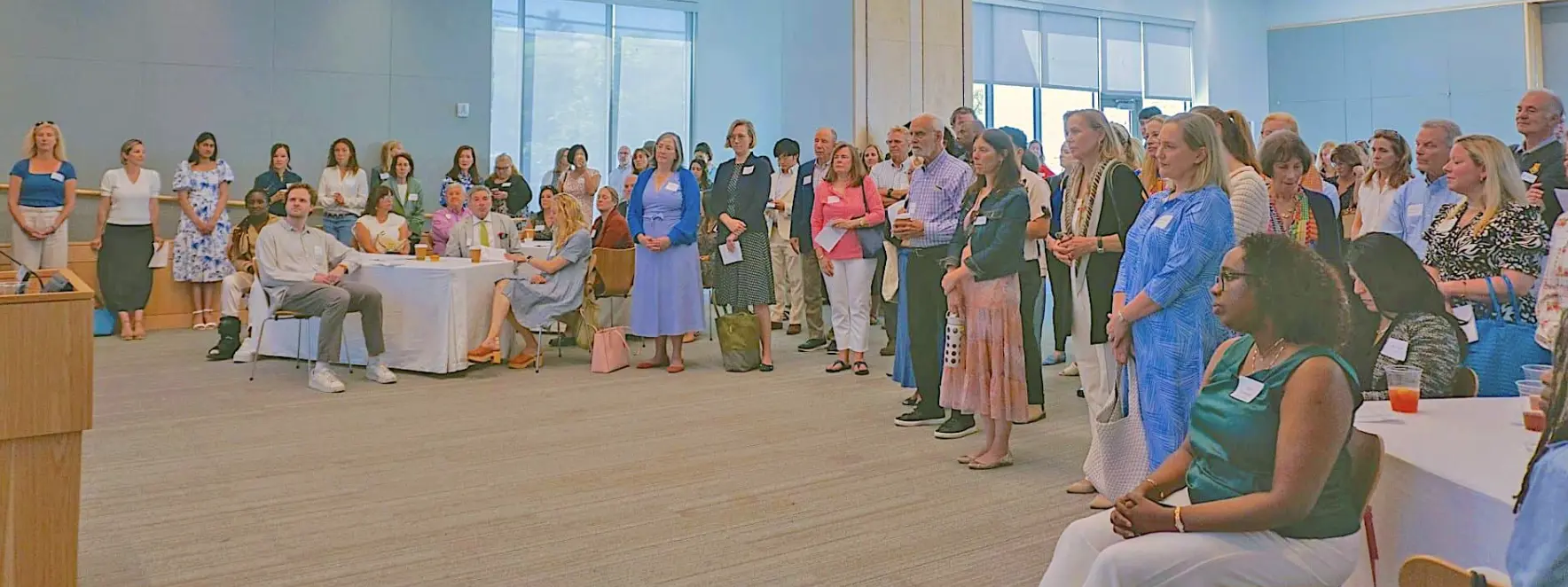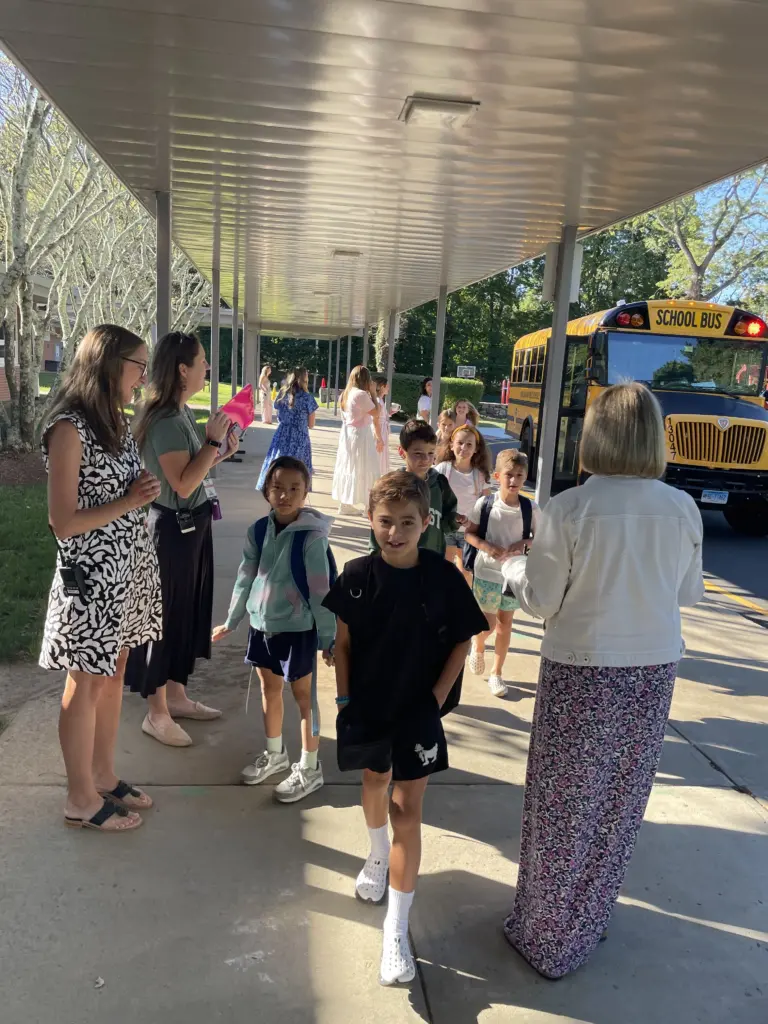
By Katherine Evans
Through grantmaking and collaboration, the New Canaan Community Foundation seeks to create an inclusive and vibrant community. On Tuesday, June 3, 2025, NCCF hosted its Grant Awards at the New Canaan Library, allocating over $1 million in grants to 90 nonprofit organizations across lower Fairfield County and New Canaan.
This year’s grant cycle, NCCF focused on deepening impact. They gave more money to specific issues areas such as mental health, human services, and early childhood programs; they also responded to trends in demand by strategically increasing grant sizes. “We’ve entered an era where philanthropic dollars must work harder and smarter,” said Lauren Patterson, the organization’s President & CEO. “This year’s grants reflect NCCF’s strategic emphasis on the most pressing issues facing our community, along with continued care for the broader nonprofit ecosystem serving New Canaan and our neighboring towns.”
Using feedback from New Canaan’s recent “Community Health & Well-being Survey,” administered by the New Canaan Behavioral Health Alliance – which NCCF helps lead alongside Silver Hill Hospital – NCCF reflected the findings of this local data in their grantmaking. While behavioral health has been a focus for NCCF for several years, this year saw grants of $7,500–$20,000 to nearly all behavioral health organizations. The survey also revealed residents didn’t know enough about local mental health services. Because of this, NCCF increased support to organizations such as New Canaan CARES, which offers parent education programs in high demand, and Liberation Programs, which helps address substance use. NCCF also continued providing support to Laurel House, whose Resources to Recover program helps families get early mental health support. These efforts are part of the Foundation’s ongoing focus on mental health and its work with the New Canaan Behavioral Health Alliance.
Priorities for NCCF this year also included early childhood, the 0-5 years that offer an opportunity to invest in both the trajectory of young children and their families. Just in its first year of focusing on the issue, the Foundation almost doubled the money it gave to this area, providing large grants to groups like Children’s Learning Centers and Women’s Business Development Council.
Rising food costs and growing hunger in the community have placed a spotlight on human services organizations. Many groups reported increased demand and worry over possible cuts to government aid programs like SNAP (Supplemental Nutrition Assistance Program) and WIC (Special Supplemental Nutrition Program for Women, Infants, and Children). In response, NCCF scaled up funding for these organizations. Notably, Catholic Charities of Fairfield County’s New Covenant Center received increased support for its comprehensive services, which provides a year-round soup kitchen, a food pantry, showers, and toiletries, helping nearly 5,000 people annually.
The Foundation also prioritized funding for critical crisis response services, including organizations such as The Rowan Center and the Domestic Violence Crisis Center which provide vital support survivors of domestic violence, sexual assault, and trauma. With possible cuts looming in federal VOCA (Victims of Crime Act) funding, these groups face challenges in continuing their work. NCCF remains committed to keeping these life-saving resources accessible for all members of the community, regardless of age, race, or background. Suzanne Adam, CEO of the Domestic Violence Crisis Center (DVCC) said, “NCCF’s meaningful investment in our general operations enables DVCC to continue providing critical, life-saving services to survivors of domestic violence, expand prevention education throughout our community, and remain responsive to the evolving needs of those we serve. This grant affirms the importance of creating safe, supportive communities.”
NCCF’s funding included nearly $150,000 from donor-advised funds and other partners, helping donors add extra targeted support to the Foundation’s main grants. “We’re grateful to the families who house their donor-advised funds with NCCF—and to the grant review volunteers who were inspired to chip in during their site visits—for choosing to align their charitable giving with our grantmaking process,” said Patterson. “Their involvement expands the reach of our collective impact in a meaningful way.”

